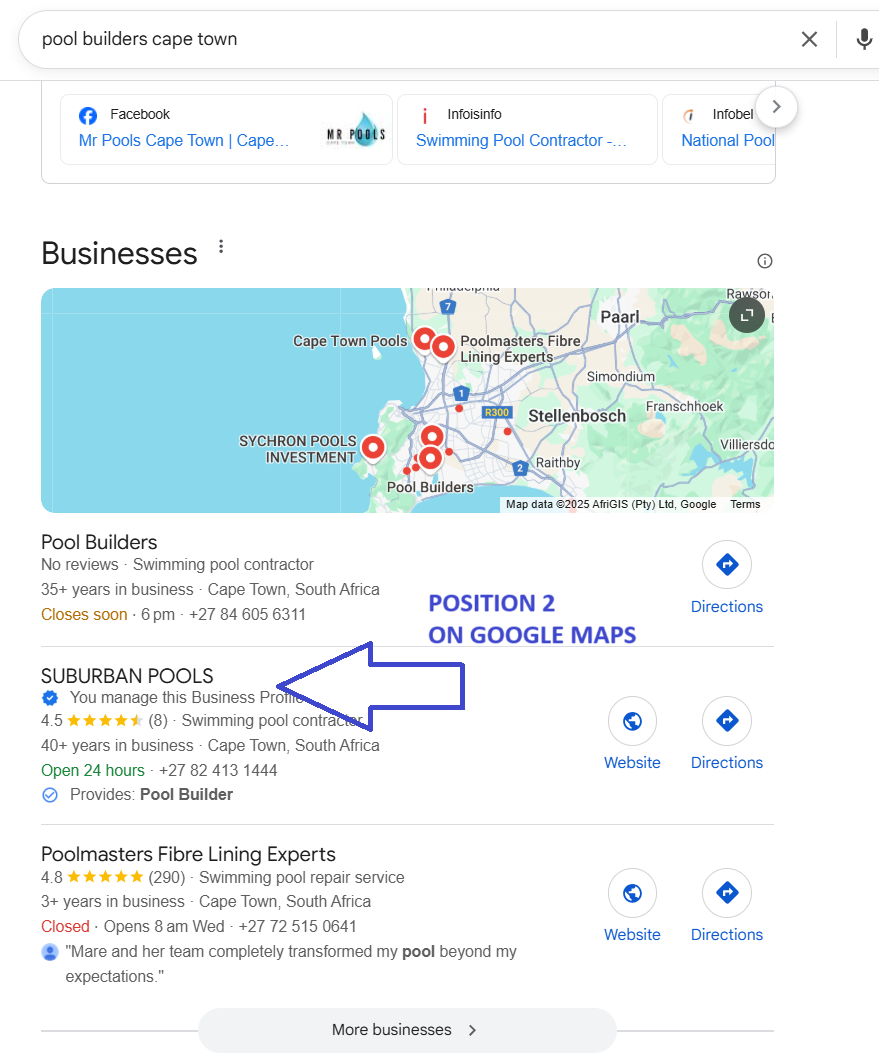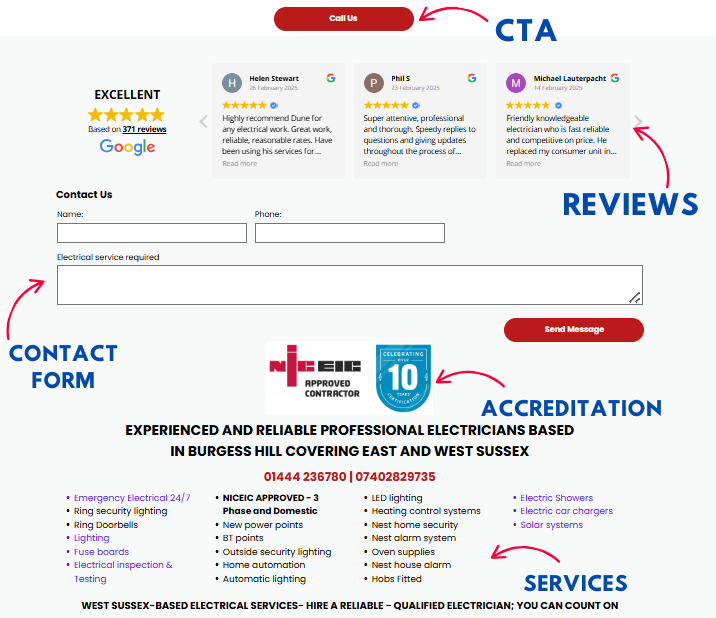Crush Your Competition Advanced WordPress PPC for London
Crush Your Competition Advanced WordPress PPC for London
Introduction: The PPC Battlefield in London
Picture this: you're walking through Camden Market, surrounded by street vendors shouting over each other, each one trying to sell the same thing. Now imagine one of them has a clean, well-lit stall, tailored exactly to your style, with a friendly approach and a message that feels like it’s meant just for you. That’s what great PPC looks like in a crowded city like London — not the loudest, but the smartest.
If you run a WordPress website and are looking to attract more leads, clients, or customers in London, Pay-Per-Click (PPC) isn’t just an option — it’s your edge. But here’s the problem: everyone is doing PPC. So, how do you make yours stand out?
In a city with thousands of competitors advertising every day, it’s not about throwing more money at ads. It’s about strategy. Smart PPC — designed specifically for WordPress and tailored to your London audience — turns clicks into conversions and browsers into buyers.
At Connect SEO , We have helped dozens of WordPress businesses in London go from invisible to irresistible, I’ve seen firsthand how advanced, localised PPC campaigns can flip a business’s fortune. In this blog, I’ll walk you through the exact steps to build a WordPress PPC strategy that not only works — but dominates.
Contact Us
Table of Contents
- Know Your Local Audience: Hyper-Targeting for London
- Keyword Domination: Advanced Keyword Strategies
- Smart Ad Structuring: Building High-Converting Campaigns
- WordPress Optimisation: Turn Clicks into Conversions
- Data-Driven Iteration: Staying Ahead in the PPC Game
- Conclusion: Power, Performance, and PPC
1. Know Your Local Audience: Hyper-Targeting for London
Let’s start where all good marketing begins: understanding your audience.
Why Local Targeting is Essential
London isn’t just one market — it’s dozens. Kensington’s luxury clients aren’t the same as Hackney’s eco-conscious creatives. If your PPC strategy doesn’t reflect that, you’re wasting clicks.
Your ads should speak the language of your buyer. Not just English, but cultural language — references, tone, concerns, even slang.
Actionable Strategies
- Use geographic filters in Google Ads: Target specific boroughs, postcodes, or radius zones.
- Segment by Demographics: Income levels, age groups, professions (especially for B2B).
- Schedule ads by Local Behaviour: Run different ads during commuter hours versus midday lunch breaks.
Questions to Ask Yourself
- Are you treating all of London the same?
- Have you created separate ad sets for North, South, East, and West London?
- Does your copy fee “London” — or could it be from anywhere?
2. Keyword Domination: Advanced Keyword Strategies
If PPC ads are arrows, keywords are the targets. But here’s the thing — most businesses aim wide and hope for the best. Winners get precise.
The Problem with Basic Keywords
Many WordPress users will just bid on “London SEO services” or “best lawyer in London.” But those are broad, expensive, and vague. You’ll burn through your budget fighting every other business in the city.
The Smarter Approach
- Use Long-Tail Keywords: Instead of “plumber London,” try “emergency plumber Notting Hill 24/7”.
- Leverage WordPress-specific modifiers: Add words like “WordPress expert,” “Elementor design,” or “WooCommerce help”.
- Use Negative Keywords Aggressively: Block irrelevant searches like “free,” “DIY,” or unrelated boroughs.
Tools to Use
- SEMrush or Ahrefs for competitive keyword research.
- Google Search Terms Report to trim the fat.
- Google Trends to tap into seasonal or local keyword surges.
Key Questions
- Are you relying on broad match keywords?
- Have you analysed competitors’ ad copy and keyword strategies?
- Are you updating your keyword list monthly?
3. Smart Ad Structuring: Building High-Converting Campaigns
Imagine your ad campaign as a department store. If everything’s dumped in one aisle — socks, perfume, furniture — your customers won’t know where to look. That’s how most DIY PPC campaigns run: messy, vague, and unorganised.
Smart ad structure is about guiding users like a well-marked shop floor — straight to what they want.
What you need to build it right
- Campaigns by Service or Product Type: One for “WordPress Web Design,” one for “PPC Management,” and so on.
- Ad groups for Each User Intent: Separate ad groups for “emergency,” “affordable,” “premium,” “local,” etc.
- Highly Relevant Ads Per Group: Each ad should speak exactly to that group’s needs.
Pro Tip: Your ad copy should echo the exact keyword that the user searched for. It creates instant relevance and improves your Quality Score.
Questions for You
- Are your campaigns built around user intent?
- Do your landing pages match your ads 1:1?
- Are you testing multiple headlines and descriptions in each ad group?


4. WordPress Optimisation: Turn Clicks into Conversions
Clicks are only half the battle. The real win happens after they land — and that’s where your WordPress site needs to shine.
Why WordPress Needs to Be Optimised for PPC
A user who clicks and lands on a slow, cluttered, or irrelevant page? They bounce — and you still pay for the click. Not cool.
What to Optimise
- Speed: Use lightweight themes, caching plugins (like WP Rocket), and image compression.
- Design Clarity: Make your call-to-action (CTA) buttons obvious, large, and compelling.
- Mobile Performance: Most PPC traffic is mobile. Make sure your layout and buttons work flawlessly.
- Conversion Triggers: Use urgency (“Limited Spots”), trust badges (Google reviews, SSL), and testimonials.
Must-Have Elements on a PPC Landing Page
- A headline that matches the ad.
- Social proof (reviews, logos, client count).
- Bullet points (like this!) that are easy to scan.
- A strong, clear CTA: “Book your free audit today!"

Questions to Evaluate
- Would you stay on your own landing page?
- Is your CTA above the fold on both desktop and mobile?
- Are you tracking actions via Google Analytics or Hotjar?
5. Data-Driven Iteration: Stay Ahead of the PPC Game
Launching the campaign is just the beginning. Great PPC managers treat their campaigns like living, breathing creatures — they track, tweak, and test constantly.
What to Track (and Why)
- Click-Through Rate (CTR): Are people engaging with your ads?
- Conversion Rate (CVR): Are clicks turning into leads or sales?
- Cost Per Click (CPC): Are you overpaying to get noticed?
- Return on Ad Spend (ROAS): Are you profitable?
Marketer’s Rule: If you don't adjust based on data at least weekly, you’re probably burning money.
How to Iterate Like a Pro
- A/B Test Everything: Ads, CTAs, images, form lengths, landing page designs.
- Schedule Reviews Weekly: Check keyword performance, budget pacing, quality scores.
- Follow the Trends: London behaviour patterns shift — seasonally, culturally, even politically.
Conclusion: Power, Performance, and PPC
Winning in London’s competitive digital space isn’t about being louder. It’s about being smarter. A sharp, focused WordPress PPC strategy:
- Connects deeply with local buyers.
- Uses advanced targeting to save money.
- Guides users with relevance and ease.
- Converts more, faster, and at scale.
Whether you're a small agency in Soho or a niche brand in Notting Hill, professional PPC management can help you crush the competition, not just compete with them.












